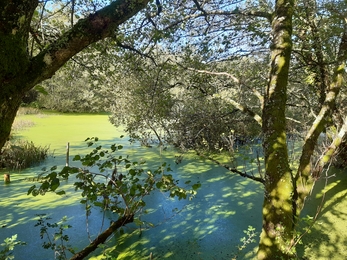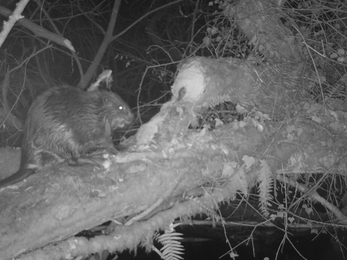The first of October marks the one-year anniversary of when Eurasian beavers, Castor fiber, were recognised as a resident native species once again in England and listed as a European protected species. The recognition of this incredibly influential mammal is a moment to celebrate, especially at a time when we fear the loss of so many threatened species after the State of Nature report was published earlier this week.
The change in legislation that came into action on 1 October 2022 safeguarded the future of beaver populations in the UK by enabling them legal protection from persecution. This will drastically aid the recovery of the currently fragmented populations of wild free-living beavers seen across six sites in the UK.
Beavers were once widespread throughout freshwater habitats across Britain, before being hunted to extinction around the 16th century. With these semi-aquatic rodents slowly returning to their rightful home, there are now ‘free-living’ populations on several river catchments in southern England, as well as small populations in several enclosed projects across the country.





